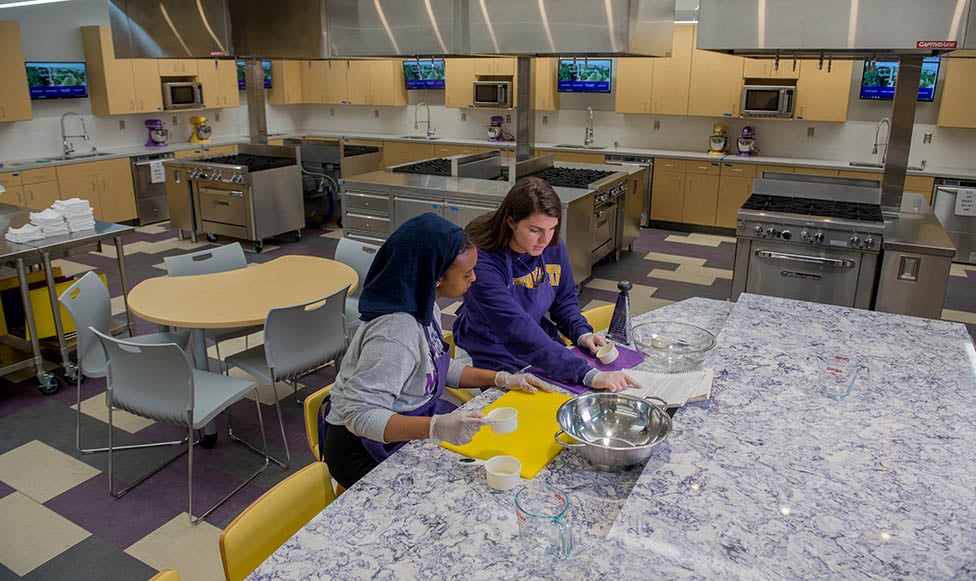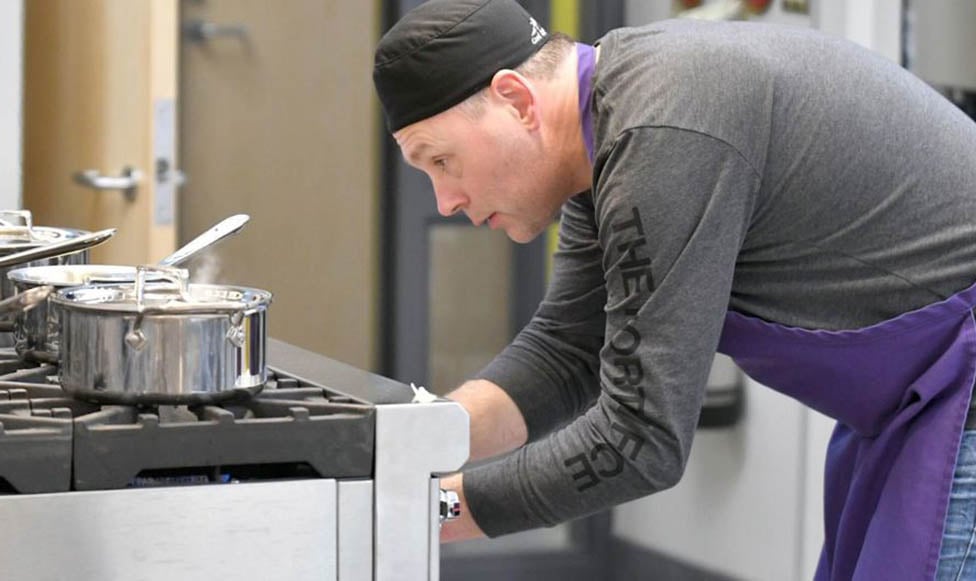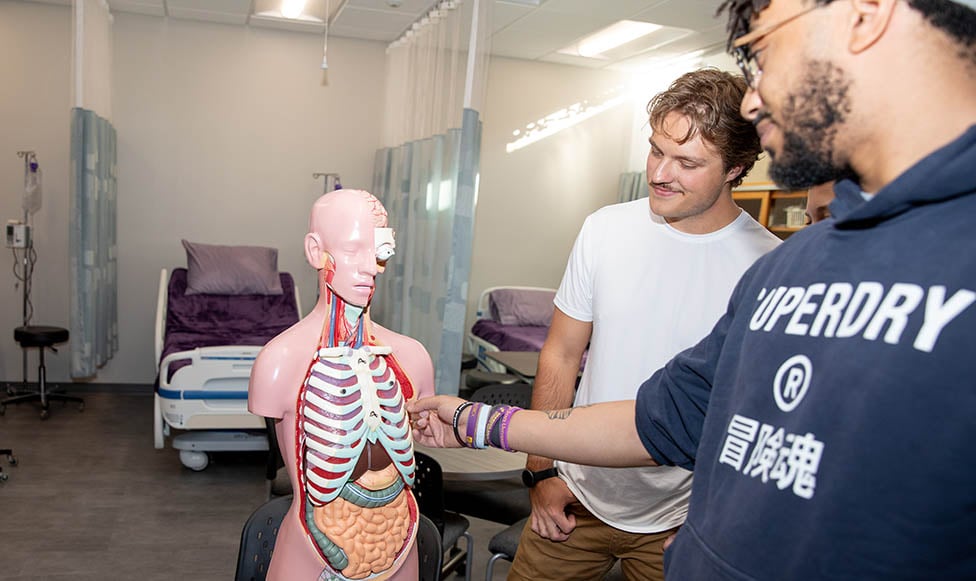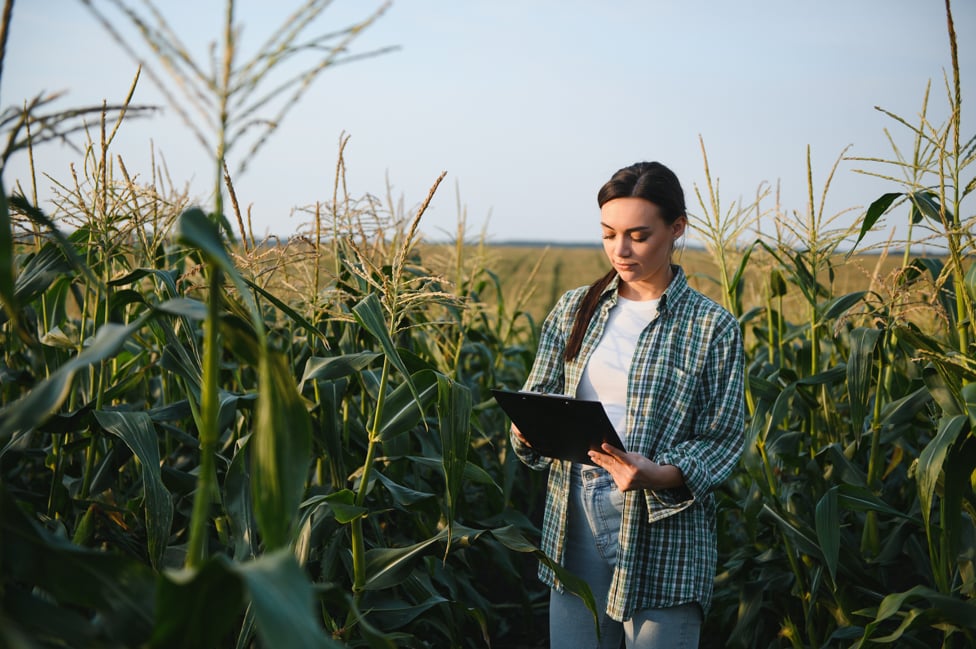
Nutrition, Food and Dietetics
Our Nutrition, Food and Dietetics programs build a strong foundation in food science, food systems, nutrition, and policy. Through hands-on learning and expert guidance, you’ll gain the skills for careers in health and dietetics. From minors to master’s degrees, we have options for you—including an accelerated pathway to become a Registered Dietitian Nutritionist (RDN).
Nutrition, Food and Dietetics Career Options
- Registered Dietitian Nutritionist (RDN)*
- Clinical Dietitian
- Community Dietitian
- Sports Dietitian
- Food Service Management
- Food Science
Potential Salary
$73,850
How to Become a Registered Dietician Nutritionist (RDN)
Many pathways take 7 years (bachelor’s + 1,000-hour internship + master’s) to become an RDN.
- At MSU, you can do it in 5 years.
Our pathway combines:
- Bachelor’s degree
- Master’s degree
- 1,000 hours of supervised experiential learning
Wherever you start—high school (PSEO), a junior or community college, or MSU—we’ll help you plan your dietetics journey.
Nutrition, Food and Dietetics degrees at MSU
Nutrition and Dietetics, Bachelor of Science
Begin your career in nutrition with a strong academic foundation. This degree prepares you for advanced study and professional practice to become an RDN.
Build a strong foundation in:
- Nutrition science
- Food systems
- Health promotion
Benefits:
- Seamless transition to our master’s program
- 12 credits apply toward your master’s
- Hands-on learning and faculty support
Already taking general education elsewhere? We’ll help you stay on track.
Food and Nutrition, Minor
The Food and Nutrition minor immerses students in essential topics like nutrition, food systems, and policies. It's a valuable addition for those pursuing careers in health, fitness, food science, or agriculture, providing a well-rounded understanding of how nutrition impacts these industries.
Dietetics, Master of Science
Our master’s program is the final step toward becoming a Registered Dietitian Nutritionist. It offers the highest quality advisory support, academic rigor, and interactive learning opportunities. The program meets all ACEND requirements and includes supervised experiential learning.
- Accredited program that meets ACEND requirements
- Includes 1,000 hours of supervised experiential learning
- Features:
- Transitional option for MSU bachelor’s students (12 credits carry over)
- Open to students with a relevant bachelor’s from another institution
- Wherever you begin, we’ll guide you.
The Master of Science in Dietetics prepares students to meet the eligibility requirements for taking the Registered Dietitian Nutritionist (RDN) exam.
Nutrition and Dietetics, Bachelor of Science
Begin your career in nutrition with a strong academic foundation. This degree prepares you for advanced study and professional practice to become an RDN.
Build a strong foundation in:
- Nutrition science
- Food systems
- Health promotion
Benefits:
- Seamless transition to our master’s program
- 12 credits apply toward your master’s
- Hands-on learning and faculty support
Already taking general education elsewhere? We’ll help you stay on track.
Food and Nutrition, Minor
The Food and Nutrition minor immerses students in essential topics like nutrition, food systems, and policies. It's a valuable addition for those pursuing careers in health, fitness, food science, or agriculture, providing a well-rounded understanding of how nutrition impacts these industries.
Dietetics, Master of Science
Our master’s program is the final step toward becoming a Registered Dietitian Nutritionist. It offers the highest quality advisory support, academic rigor, and interactive learning opportunities. The program meets all ACEND requirements and includes supervised experiential learning.
- Accredited program that meets ACEND requirements
- Includes 1,000 hours of supervised experiential learning
- Features:
- Transitional option for MSU bachelor’s students (12 credits carry over)
- Open to students with a relevant bachelor’s from another institution
- Wherever you begin, we’ll guide you.
The Master of Science in Dietetics prepares students to meet the eligibility requirements for taking the Registered Dietitian Nutritionist (RDN) exam.
ACEND Accreditation
Minnesota State University Mankato’s Master of Science in Nutrition & Dietetics has been granted candidate status by the Accreditation Council for Education in Nutrition and Dietetics (ACEND) of the Academy of Nutrition and Dietetics. Graduates who successfully complete the Master of Science in Nutrition & Dietetics are eligible to take the Commission on Dietetic Registration credentialing exam to become a Registered Dietitian Nutritionist.
120 South Riverside Plaza, Suite 2190
Chicago, IL 60606-6995, (312) 899-0040 ext. 5400
http://www.eatrightPRO.org/ACEND

Hands on Learning in Foods Lab!
Our cutting-edge foods lab feature Cambria counters, a vibrant herb garden and advanced appliances like multi-temp ovens and commercial gas ranges. Each station is equipped with video screens that double as computer monitors, fostering collaboration and hands-on learning in a professional-grade environment. The attached sensory lab, used in many of the food science courses, provides an adaptable environment for students to conduct sensory evaluation on various foods.

Nutrition Assessment Skills Lab
This dedicated space gives dietetic students hands-on experience in:
- Anthropometric measurements (height, weight, body composition, waist circumference)
- Dietary analysis using records and software
- Biochemical data interpretation
- Nutrition-focused physical exams and client interviews
- Applying the Nutrition Care Process in clinical and community settings
Through simulations and case-based learning, students bridge classroom knowledge with practical skills for supervised practice and careers as Registered Dietitian Nutritionists.
Learn More
Registered Dietician Nutritionist (RDN) Eligibility
Graduates of the Nutrition, BS and Dietetics, MS programs who complete all required supervised experiential learning hours will receive a Verification Statement, making them eligible to take the national registration exam for dietitians. As of 2024, earning a master's degree and a Verification Statement is required to become a Registered Dietitian Nutritionist (RDN).
Student Dietetic and Nutrition Organization (SDNO)
SDNO brings together students passionate about dietetics, food, and nutrition while promoting professionalism in the field. Open to all MSU students with an interest in health and nutrition, this organization offers opportunities for networking, learning, and professional growth.
Nourish to Flourish Cooking Series
Learn to cook healthy, affordable meals in hands-on classes led by Minnesota State Mankato graduate dietetics students. Open to MSU students and the public, each session blends practical nutrition tips, simple techniques, and cultural relevance to support sustainable eating—while giving our grad students valuable teaching experience.
Related Programs

Agribusiness and Food Innovation, Bachelor of Science
The Agribusiness and Food Innovation major shapes future agribusiness leaders by building their knowledge and skills in agriculture and food, with hands-on learning and leadership development in the field. This degree is part of the College of Business, an accredited member of AACSB International-The Association to Advance Collegiate Schools of Business.

Family Consumer Science
The Family Consumer Science program trains future professionals to promote family health through degrees in Dietetics, Child Development and Family Studies and Family Consumer Science Education.
Family Consumer Science Department
College of
Allied Health and Nursing
The College of Allied Health and Nursing is a thriving community dedicated to preparing future leaders in nursing, communication sciences and health-related fields. With state-of-the-art learning centers, real-world experiences, clinical practicums and fieldwork and strong community connections, students gain the hands-on training needed for success. Committed to equity and inclusion, we create an environment where all learners can excel and make a meaningful impact in health and wellness.
